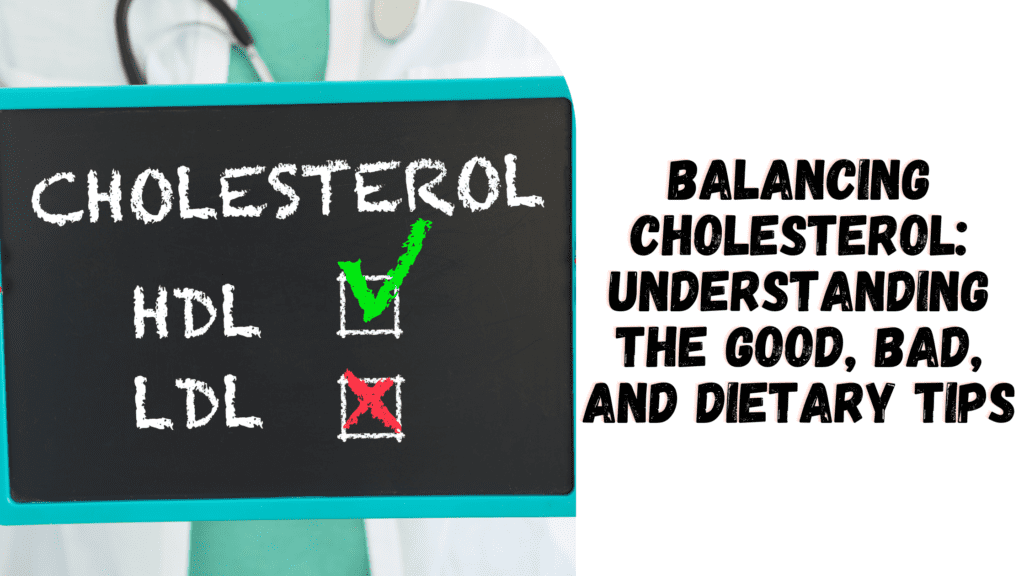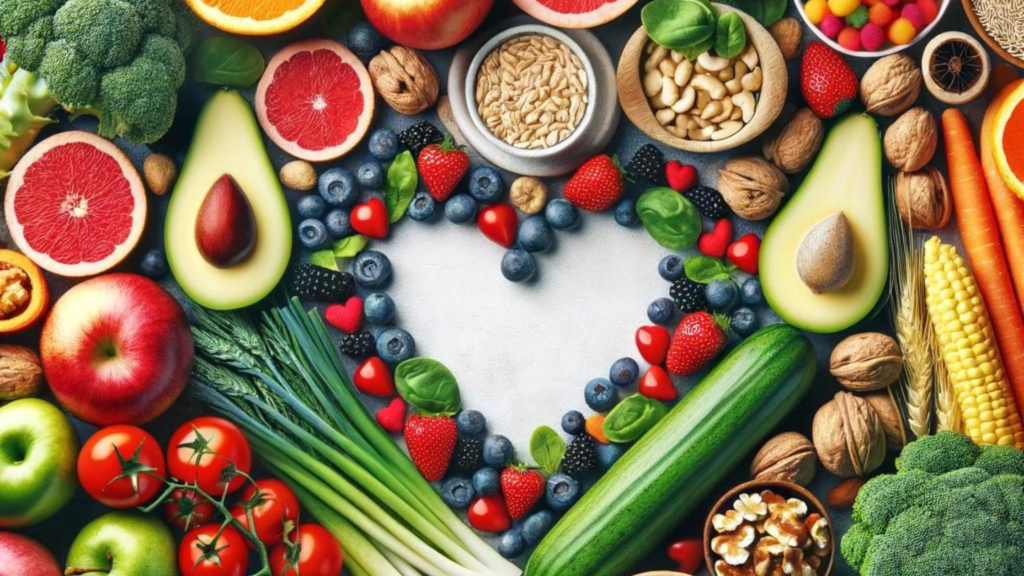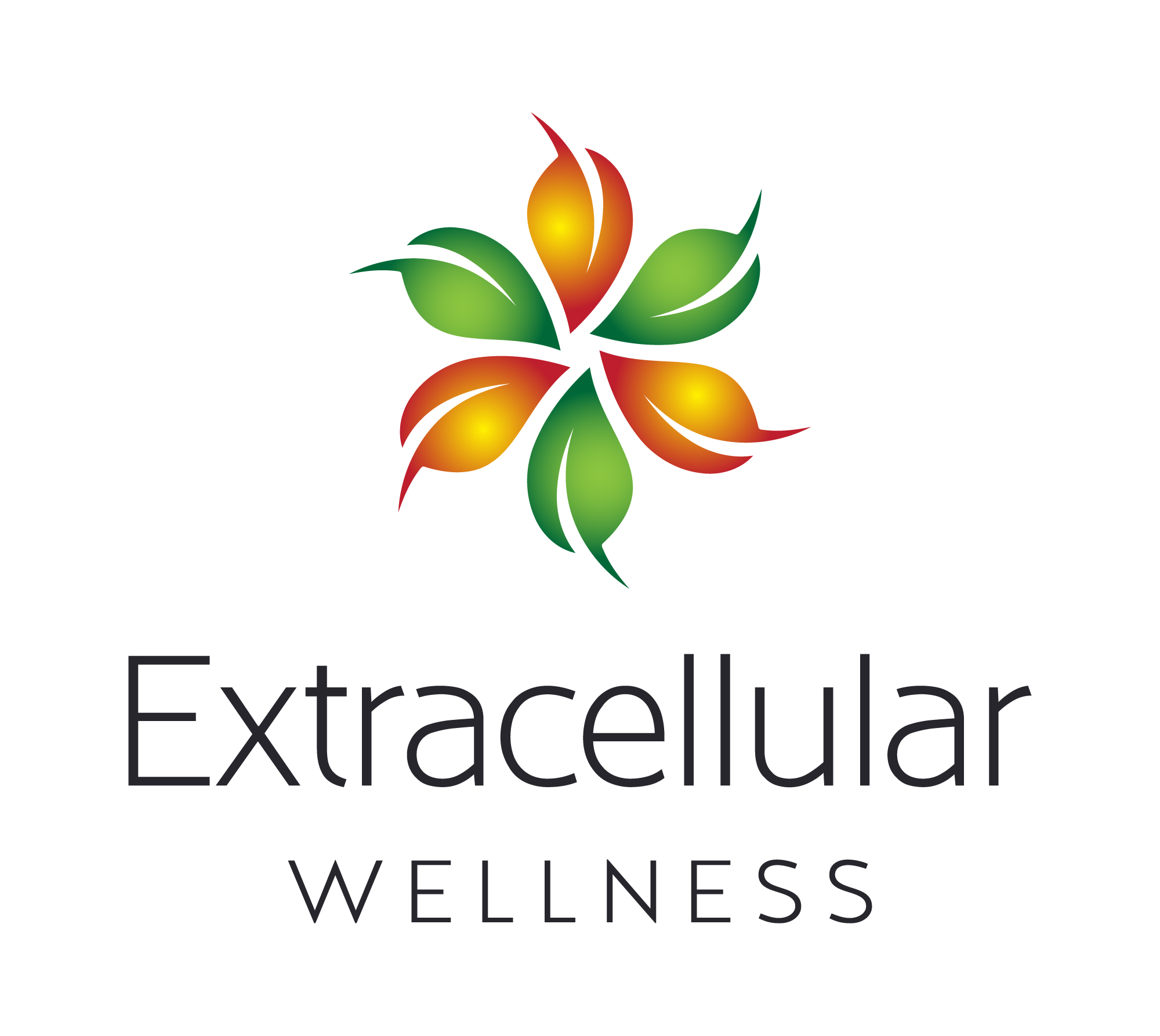
Table of Contents
Demystifying Cholesterol
Fats, called cholesterol, are essential for building everything from cell walls to hormones. But too much cholesterol can cause trouble. So, it’s worth understanding its good and bad sides, and learning how to keep a crucial balance for optimal health.
The Good, the Bad, and the Ugly
Think of cholesterol as a waxy, fat-like molecule. Your body naturally produces it in the liver, and you also get it from certain foods like meat, eggs, and dairy. Now, cholesterol isn’t transported alone. It attaches to special delivery vehicles called lipoproteins. Two main types are:
LDL (Low-density lipoprotein):
- LDL (Low-density lipoprotein): The “bad” fat; that can be involved in transporting cholesterol into the arterial walls. Cholesterol joined with LDL can lead to blockages in arteries and ultimately, heart disease, strokes, and circulation issues
HDL (High-density lipoprotein)
- HDL (High-density lipoprotein): The “good” fat; HDL acts as a clean-up vehicle, picking up any excess cholesterol and transporting it back to the liver for disposal.
Keeping the HDLs, in abundance and the LDLs low, is the key to a healthy cholesterol balance.
Demystifying the Cholesterol Tests
So, how do you know if your cholesterol is in the right balance?
Understanding Your Lipid Profile
A simple blood test called a lipid profile will tell you:
- Total cholesterol: The sum of all your LDL, HDL, and other types of cholesterol.
- HDL cholesterol: Your good fat levels.
- LDL cholesterol: Your bad fat levels.
- Triglycerides: A type of fat that can affect heart health.
Aim for a total cholesterol below 5 mmol/L, an HDL above 1 mmol/L (Men) and 1.2mmol/L (Women), and an LDL below 3 mmol/L. If your lipid levels are off, don’t panic! There are plenty of ways to get things back on track.
Dietary Tips for Healthy Cholesterol
Remember, food plays a crucial role in your cholesterol balance.
Here’s how your diet can be the secret ingredient to a healthy life:
Foods to Choose
- Choose lean protein: Swap fatty meats for skinless chicken, fish, or beans.
- Go green: Fill your plate with fruits and vegetables, packed with fibre that helps lower LDL.
- Embrace whole grains: opt for whole-wheat bread, brown rice, and quinoa instead of refined grains.
- Get creative with healthy fats: Include olive oil, avocados, nuts, and seeds, rich in heart-healthy unsaturated fats that can raise HDL.
- Don’t forget the fibre: Soluble fibre, found in oats, beans, and certain fruits, can help absorb cholesterol and flush it out of your system
Foods to Avoid
- Say no to saturated and trans fats: Found in fried foods and processed meats, these bad fats raise LDL levels.
Lifestyle Changes for Happy Cholesterol
Diet is just one part of the equation. These lifestyle choices can also help keep your cholesterol in balance:
- Move your body: Regular exercise, even brisk walking for 30 minutes most days, boosts HDL and lowers LDL.
- Stress less: Chronic stress can raise bad cholesterol. Find healthy ways to manage stress, like yoga, meditation, or spending time in nature.
- Don’t smoke: Smoking significantly increases your risk of heart disease, by causing damage to the inside of blood vessels allowing cholesterol to stick to and narrow the opening. It can also affect your cholesterol levels.
- Limit alcohol: Excessive alcohol consumption can raise your triglycerides and LDL levels. Moderate your intake or consider quitting altogether.
Separating Fact from Fiction
There’s a lot of misinformation floating around about cholesterol. Let’s debunk some common myths:
- Myth: Eggs are bad for cholesterol.
- Fact: While eggs contain cholesterol, they also have plenty of beneficial nutrients that can improve your cholesterol profile. Moderation is key!
- Myth: You don’t need to worry about cholesterol if you’re young.
- Fact: High cholesterol can develop early in life, especially if you are genetically predisposed. Early detection and management are crucial to prevent future health problems.
- Myth: Supplements can magically lower your cholesterol.
- Fact: While certain supplements like fish oil or plant sterols may have a small effect, they should not be a substitute for a healthy diet and lifestyle.
In summary, cholesterol is both good and bad. High LDL increases heart disease risk, while high HDL protects against it. You can manage your cholesterol through lifestyle changes and, if needed, medication. If you have any questions about cholesterol or your specific situation, please contact us at ExtracellularTM.
References
- NHS on Cholesterol: https://www.nhs.uk/conditions/high-cholesterol/
- Heart UK on Cholesterol: https://www.heartuk.org.uk/cholesterol/what-is-cholesterol
- British Heart Foundation on Healthy Eating: https://www.bhf.org.uk/informationsupport/support/healthy-living/healthy-eating
Conclusion
In conclusion, the journey through understanding cholesterol is much like navigating a complex maze—filled with twists and turns but ultimately leading to a clearer path for your health. By distinguishing between the LDL “villains” and the HDL “heroes,” we equip ourselves with the knowledge to make informed decisions about our diet and lifestyle. Embracing heart-healthy foods, engaging in regular physical activity, and mindful living are not just steps towards managing cholesterol; they are strides towards a more vibrant, healthier life.
Remember, the power to balance the scales of good and bad cholesterol lies within our daily choices. Let’s make those choices count, steering our health journey towards a destination of well-being and longevity. And as always, for personalised advice and guidance, consulting with healthcare professionals is invaluable. Together, we can demystify cholesterol and protect our heart’s health for years to come.
THANK YOU
Thank you for dedicating your time to learning about cholesterol through our article; understanding such a critical aspect of your health is indeed essential. We’re here to provide you with the information you need. We invite you to explore our diverse collection of Blogs posts for more insightful perspectives on topics that matter to you. From in-depth articles on health and wellness to enlightening pieces on current global issues, we strive to bring you content that informs, inspires, and engages.
Disclaimer: Please note our blogs are for informational purposes only and do not substitute for professional medical advice. Please consult us at ExtracellularTM or your doctor for further advice.






















































0 Comments